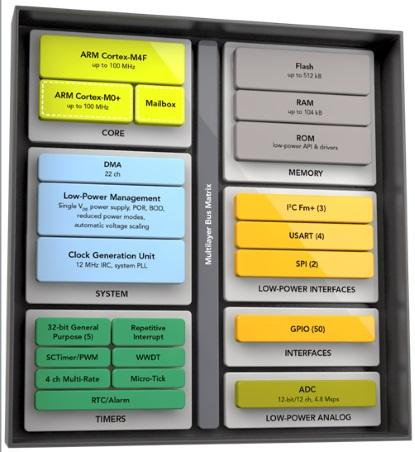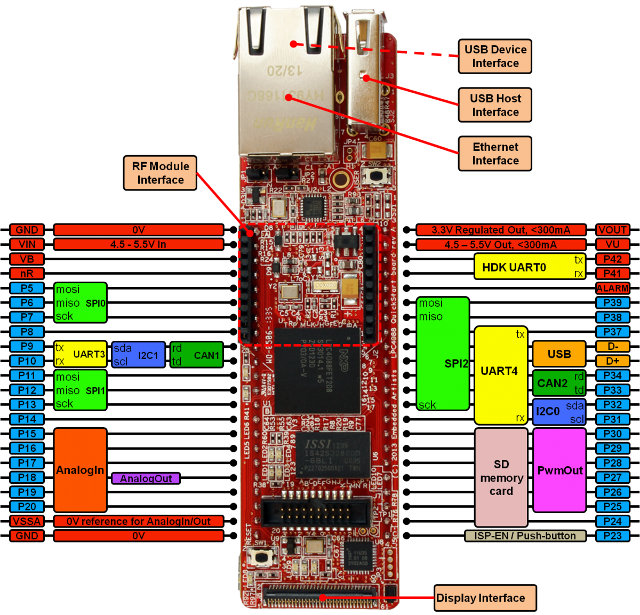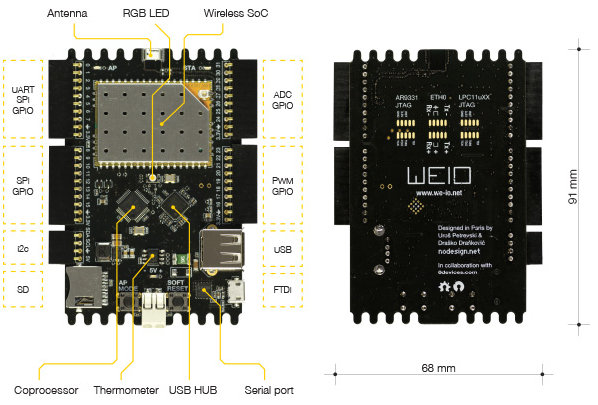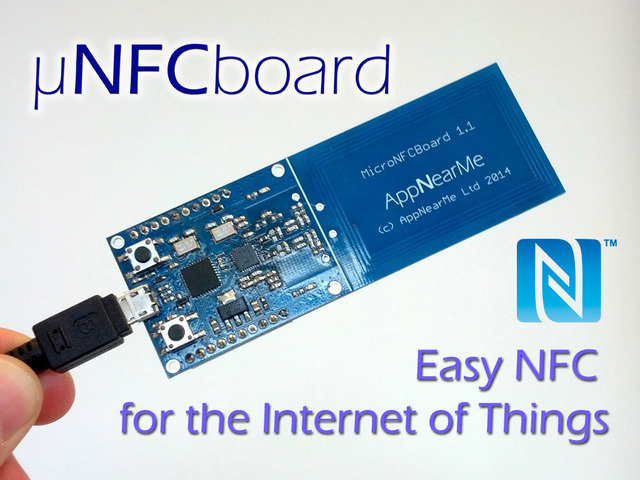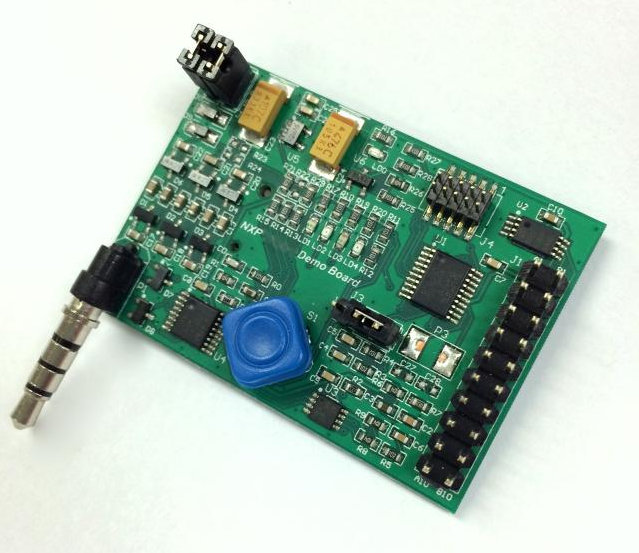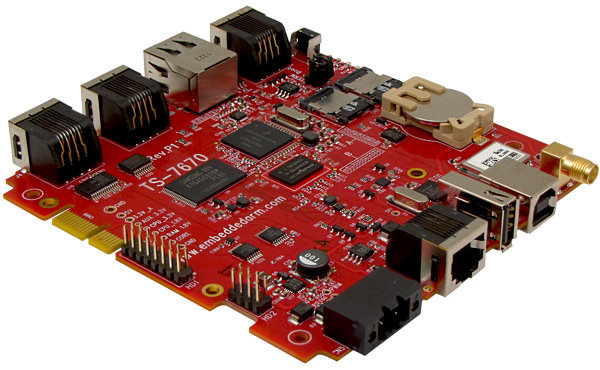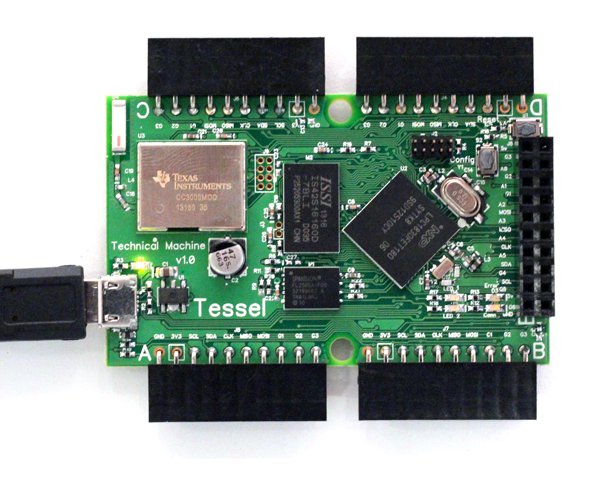NXP has recently introduced LPC54100 Series microcontrollers with a Cortex-M4F core up to 100MHz, and optionally an ARM Cortex M0+ core for always-on sensor processing applications, as well as LPCXpresso 54102 board. Typical applications include mobile, portable health and fitness, home and building automation, fleet management and asset tracking, robotics and gaming. Key features of LPC54100 series MCUs: CPU – 32-bit ARM Cortex-M4F up to 100 MHz, optional 32-bit ARM Cortex-M0+ coprocessor On-chip RAM – 104 KB internal RAM On-chip Storage – Up to 512 KB on-chip Flash Interfaces 3 fast-mode plus I²C, 4 UART, 2 SPI, 39 GPIO ADC with up to 12-channels, 12 bits, and 4.8 Msps sample rate, full-spec (1.62 V to 3.6 V) Clock Sources – IRC, digital clock input, PLL, 32 kHz XTAL, WWDT Timers – 5x 32-bit general-purpose timers/counters, One-state configurable timer/PWM, RTC with alarm, and WWDT 22-channel DMA with 20-programmable triggers Power consumption […]
ARM Unveils Embedded Systems Education Kit Based on NXP LPC4088 Cortex M4 MCU
Following up on their first “Lab-In-a-Box” initiative based on Micro STM32F4-Discovery board and Wolfson audio card, ARM launched another low-cost toolkit, based on Embedded Artists LPC4088 QuickStart and Experiment boards, and called “Embedded Systems Education Kit”, to help university educators teach embedded systems design and programming concepts. The kit includes the following hardware, software tools, and teaching materials: Embedded Artists LPC4088 QuickStart Board and LPC4088 Experiment Base Board ARM Keil MDK-ARM Pro microcontroller development suite software licences Complete teaching materials including lecture note slides, demonstration code and hands-on lab manuals with solutions in source for four embedded system courses: ‘Efficient embedded systems design and programming’ teaches microcontroller fundamentals using NXP’s 32-bit ARM Cortex-M4 based LPC4088 microcontroller. ‘Rapid embedded system design and programming’ delivers embedded systems design training for the high-level ARM mbed API ‘OS design’ uses the royalty-free ARM Keil RTX RTOS to show how to design, program and optimize […]
WeIO is an Open Source Hardware IoT Board Programmable from a Web Browser (Crowdfunding)
WeIO is an open source hardware board for the Internet of things with Wi-Fi connectivity and lots of I/Os designed by nodesign, a French based startup, in collaboration of 8devices, the makers of the Carambola boards. WeIO is powered by an Atheros AR9331 SoC running OpenWRT as well as an NXP LPC MCU for faster handling of I/Os and support for analog I/Os. One interesting aspect of this board is that it can be programmed via a web browser using HTML5 or Python, and it does not rely on the Cloud to store data. WeIO hardware specifications: SoC – Atheros AR9331 MIPS 24K Wireless SoC @ 400 MHz MCU – NXP LPC11xx ARM Cortex M0 MCU for analog I/O and real-time H/W interfaces System Memory – 64 MB DDR2 Storage – 16 MB flash + micro SD slot Connectivity – 802.11 b/g/n Wi-Fi with on-board antenna (AP and STA modes), […]
$70 MicroNFCBoard Brings NFC Connectivity to Any Board or Device (Crowdfunding)
AppNearMe MicroNFCBoard is a development platform for Near Field Communication (NFC) comprised of an NFC transceiver, an NXP MCU, and all software stack and tools you need for development. This board also exposes various I/Os that allows you to connect to external hardware or devices, and it can be used with an Arduino, Raspberry Pi, mbed or PC/Mac. Let’s go through the board specifications first: MCU – NXP LPC11U34FHN33/421 Cortex M0 MCU @ 48MHz, with 10KB RAM, 48KB FLASH, 4KB EEPROM NFC Transceiver – NXP PN512. Reader/Writer and card operation modes supporting ISO14443A/Mifare and FeliCa schemes. NFCIP-1 mode Splittable antenna USB – 1x micro USB port for power and programming I/O – 20x through holes with access to serial (UART), I2C, SPI, 4x ADC inputs, IRQ, Boot and Reset, and power pins. (2x pin header that you can solder are provided) Misc – Reset and bootloader enable push-buttons, 2x LEDs. […]
Amptek iCon is an ARM Cortex M3 Board for IoT Running uCLinux (Crowdfunding)
Up until now, the only company I ever heard running Linux on ARM Cortex M3/M4 was EmCraft Systems with their system-on-modules and development kits based on Freescale Kinetis, STMicro STM32 and Actel Smartfusion micro-controllers. But there’s now another option thanks to Ampek Technologies, a Canadian based company funded in 2002, and their iCon (Internet Connectivity) board featuring NXP LPC1788 Cortex M3 connected to 64MB RAM which is plenty enough to run uCLinux. The board can be used for applications such as industrial control systems, wireless sensors, or smart home appliances. The iCon board specifications are as follows: MCU – NXP LPC1788 ARM Cortex-M3 MCU @ 120MHz with 512 KB flash memory, and 96 KB SRAM System Memory – 64MB SDRAM (external chip) Storage – 32MB flash for firmware Connectivity – 802.11 b/g/n, Bluetooth 4.0. Ethernet is supported via an add-on module USB – USB 2.0 host port, mini-USB debug port […]
NXP Smartphone Quick-Jack Solution Connects to Your Smartphone Audio Jack and Interfaces with Sensors, HMI Devices
We already knew the audio jack on your mobile device was not only for your headset, thanks to small items like Pressy hardware button. But it’s actually possible to do much more, as shown by NXP smartphone quick-jack solution, a board that can interface sensors to your Android smartphone / tablet or iPhone / iPad via the headphone/microphone jack of your device. The company claims it can be used for various applications such as cloud-based tracking of sensor data, external input devices to smartphone, wearable health monitors, personal exercise trackers, handheld weather stations, handheld inventory monitors, handheld/portable POS devices, and universal remote controls, using powered harvested from the audio jack, and optionally a battery. Let’s go through the hardware specifications of this little board codenamed OM13069: MCU – NXP LPC812 ARM Cortex M0+ MCU @ 30 MHz with 16KB flash, 4KB SRAM On-board peripherals – Joystick, temperature sensor, and LEDs […]
Technologic Systems TS-7670 Industrial Board Features Freescale i.MX286, Supports RAID-like System on SD Cards
Technologic Systems has unveiled an industrial board powered by Freescale i.MX286 ARM9 processor and a MCU part of NXP LPC1100 Cortex M0 series to to create a CDC ACM serial device on a host PC, and interfaces via UART, I2C, and SPI with the Freescale processor. The board targets applications such as fleet vehicle or asset tracking, point-of-sales (PoS), vending machines, data acquisition units, and data recorder modules. TS-7670 specifications: Processor – Freescale i.MX286 (1x ARM926EJ-S core @ up to 454MHz) MCU – NXP LPC Cortex M0 MCU in QFN32 package (LPC1114??) System Memory – 128MB to 256MB DDR2 RAM Storage – 2GB soldered NAND flash, 2x microSD slot with Doublestore support (similar RAID on SD card) Connectivity – 10/100 Ethernet port Wireless – Optional Telit Jupiter series multi-constellation GPS; optional CDMA, GPRS, or HSPA+ modules USB – USB host port, USB OTG port Other I/Os: 2x RS-232/interfaces (optional TTL […]
Tessel ARM Cortex-M3 MCU Board Brings Hardware Hacking to Web Developers with JavaScript and Node.js
People who are proficient with JavaScript or web technologies may not be completely comfortable with programming MCU in assembler and/or C programming language. Node.js, written in JavaScript, seems to be quite popular this days for diverse projects, but technical.io has decided to design a board called Tessel, powered by a Cortex M3 MCU. that can be fully programmed with JavaScript/Node.js. Tessel hardware specifications: MCU – NXP LPC1830 ARM Cortex-M3 @ 180mhz System Memory – 32MB SDRAM Storage – 32MB Flash Connectivity – Wi-Fi via TI CC3000 Expansion – 16-pin GPIO bank for prototyping Power – Micro USB or battery The board is said to be compatible with 1000’s of Node.js modules from NPM, can be programmed via USB or Wi-Fi using your own IDE, and support Tessel modules, as well as Arduino Shields. There are two (price) classes for Tessel modules: Class A: Relay — turn devices on and off (up […]


